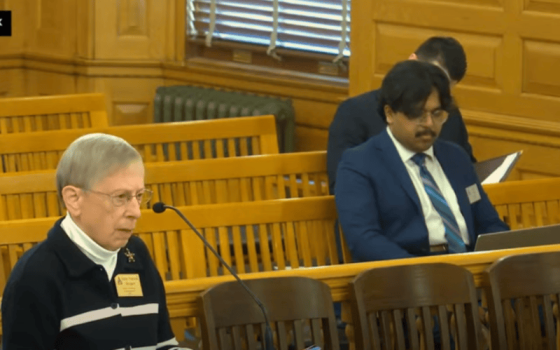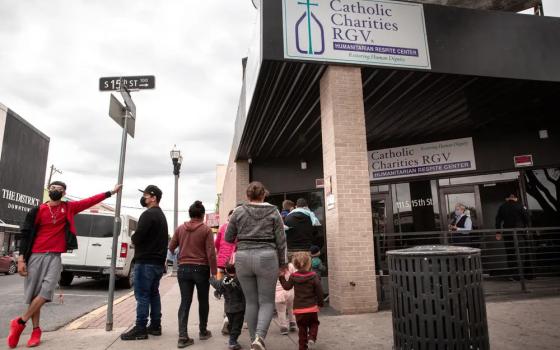
PORTLAND, Ore. -- As Republican presidential candidates debate the volatile topic of immigration, federal enforcement officers are quietly enacting a new policy that could bring what one Oregon lawyer calls a "seismic shift."
Under new rules adopted by the Obama administration in 2011, deportation is reserved for felons, national security risks or repeat immigration offenders. Undocumented immigrants guilty only of minor legal violations and who have long and substantial ties in the United States would have their deportation cases set aside.
That could fulfill one demand issued by the U.S. Catholic bishops -- that immigrant families not be broken up over small offenses such as a broken taillight. Until now, agents have presumed that any violation could be a path to deportation.
The change is "a potential seismic shift in enforcement," said Geoffrey Scowcroft, an attorney who manages immigration legal services for Catholic Charities in Oregon. "We are in the very early stages of this, but this policy is as close to good news as we have seen in years," said Scowcroft, who helps immigrants negotiate the legal system.
Immigrant cases that get closed will not be dismissed. Prosecutors can reopen proceedings for future offenses.
The Department of Homeland Security, which oversees Immigration and Customs Enforcement, described the new discretion as a way to unclog dockets, which now creep along with more than 300,000 cases. It can take two years for an immigrant to move through. Scowcroft knows of people with pending cases who have decided to pack up and go home, unable to make a life in the U.S. with the threat of deportation dragging on.
The Portland Immigration and Customs Enforcement office, for example, just added a second judge. That, plus the new policy, could mean a relatively brisk pace. The agency's lawyers nationwide are now reviewing current cases to see which should proceed. Enforcement agents and agency lawyers will get a new round of training.
Immigration officials had the power to exercise discretion before the changes, but did so only in highly compelling cases. Now, more immigrants and their attorneys will be requesting stays of removal.
"From the defense attorney's perspective, I am hopeful that things are moving in the right direction," said John Marandas, an immigration attorney and member of St. Anthony Parish in Tigard. "However, we have yet to see the full implementation of the new policy."
Marandas, a member of the American Immigration Lawyers Association, says fellow members report that prosecutorial discretion is not being applied uniformly nationwide. He's also taking a cautious approach because "immigration policies can change administration to administration."
For now, Marandas says if the policies are implemented fairly, that will empower local immigration officials to alleviate some of the "harshness" that follows arrest and detention of noncitizens.
Meanwhile, two immigration dramas played out in Portland just before Christmas.
A Guatemalan man who won a reprieve from deportation was able to board a plane to visit his wife, who had been sent out of the U.S. five years ago. Luis Diaz fought to stay in Oregon to care for his young Portland-born daughter and will be able to return freely. Jennifer Diaz, 17, went along on the trip with her father to see her mother for the first time since she was 11.
Before departure at Portland International Airport, Diaz was happy and nervous, wearing a bracelet his wife had given him. He got help with travel costs from Mano a Mano, an organization that has been supported by the Catholic Campaign for Human Development.
The couple fled Guatemala in 1993 because of civil war and resulting economic instability. During Diaz's appeals before immigration officials, the prospect of being deported and either leaving his daughter or taking her to a developing nation where she would be a stranger, inspired him to fight against the odds.
In another case, activists in Portland delayed deportation of an undocumented high school student. Supporters of 19-year-old Gustavo Romero Alvarez held a candlelight vigil at Portland City Hall to draw attention to the case of the high school senior who was to be deported because he stole a shirt from a department store.
Supporters said that mistake should not be enough to rid the state of a promising student. Alvarez, who admits he did wrong, had been in the U.S. since he was 7.
"I want to be able to stay in Oregon to graduate and go to college to become a firefighter," Alvarez said before being sent to Mexico. "I would be the first one in my family to graduate from high school, and my family is really looking forward to see me walk across the stage on graduation day."



